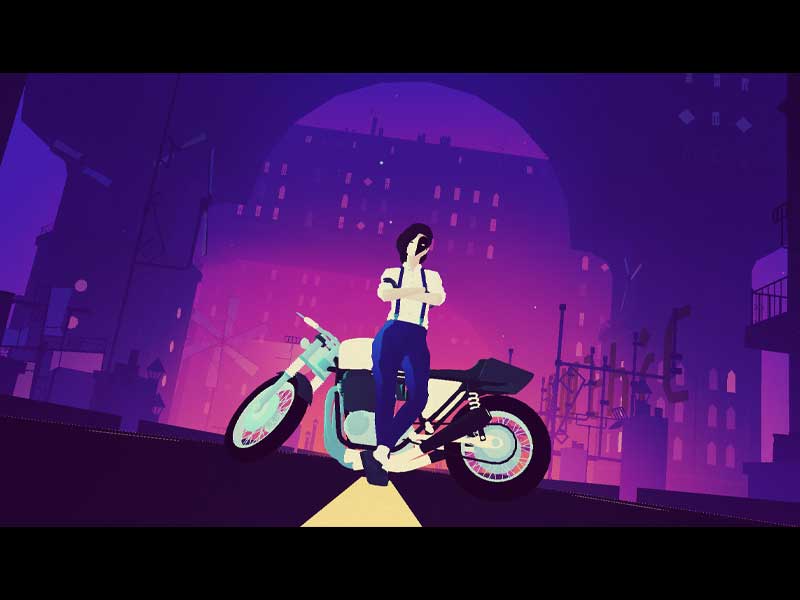
Tellingly, I immediately started playing the whole thing again the moment I reached the end, and I can see myself coming back to it time and time again. This game doesn’t have the ‘one more go’ drive behind it where you push through frustration to achieve something, it’s more akin to hearing your favourite track on Spotify and immediately hitting repeat as the final chord is still ringing. One too many failures and the game will offer to get you past that section, but purists will be glad that you can tell it never to ask you ever again if you don’t want it to. Crashing into something stalls the track and rewinds a few seconds so you can tackle it again. In some instances Sayonara Wild Hearts could virtually play itself, but then you’d have no chance of achieving a high score or a decent grade, which remains the primary gameplay driver. Plainly, it’s not that challenging until the later stages, and I’d expect that everyone will be able to experience it in its entirety. Beyond that it’s a single contextual button that with the correct timing sees you leap over obstacles, dodge enemy blows or smash those Wild Hearts into pieces.

Your interaction is mostly directional, with the pleasingly tuned controls switching naturally between skateboarding and running through to motorcycle riding and flying as you aim for the neon hearts strewn in your path. Brief interludes lead to longer sections, and I’ve begrudgingly came to accept that repeating mechanics and extending songs would have damaged the way that it feels as a game, as an album and an experience. Sayonara Wild Hearts is perfectly weighted to stop you overdosing though. There were occasions where I prayed for them to keep going just that bit longer, and the moments where they did carry on just as I thought they were coming to a close filled me with elation. As someone with an addictive personality, I don’t really know whether you can have too much of a good thing, but some of the tracks in Sayonara Wild Hearts actually made me sad when they finished after ninety seconds. With vocals from singer-songwriter Linnea Olsson and instrumental sections that shift from hard-hitting house to ambient electro it’s an album for the ages, and one that is perfectly on-point.


While plenty of modern indie games are tying their flags to the synthwave zeitgeist, Sayonara Wild Hearts’ electro pop takes the ultra-catchy hooks of CHVRCHES and blends them with the atmospheric tones of M83 and the effortless cool of FM-84. It’s a pop-culture gem with a message of positivity and hope when all hope has been lost, framed by enigmatic neon-tinged visuals and set to a banging soundtrack. The fact that Simogo are a small indie development team from Sweden, centred around the duo of Simon Flesser and Magnus “Gordon” Gardebäck, is remarkable and what they’ve achieved with Sayonara Wild Hearts is exceptional.


 0 kommentar(er)
0 kommentar(er)
